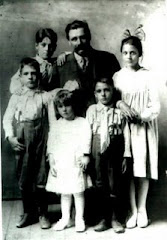God sent Jesus to teach people the truth. Notice Jesus' words to Pilate: "...My kingdom is no part of this world. If my kingdom were part of this world, my attendants would have fought that I should not be delivered up to the Jews. But, as it is, my kingdom is not from this source." Therefore Pilate said to him: "Well, then, are you a king?" Jesus answered: "You yourself are saying that I am a king. For this I have come into the world, that I should bear witness to the truth. Everyone that is on the side of truth listens to my voice." -John 18:36, 37
Jesus taught about God's Kingdom, a government in heaven that will bring peace to all the earth. "Then he went around throughout the whole of Galilee, teaching in their synagogues and preaching the good news of the kingdom and curing every sort of disease and every sort of infirmity among the people." -Matthew 4:32
Jesus provided the hope of everlasting life. "Whoever drinks from the water that I will give him will never get thirsty at all, but the water that I will give him will become in him a fountain of water bubbling up to impart everlasting life." - John 4:14
Jesus taught people about finding real happiness. "Happy are those conscious of their spiritual need, since the kingdom of heaven belongs to them." -Matthew 5:3 (Compare: Matthew 6:19-21)
Jesus also taught by example. "In fact, to this course you were called, because even Christ suffered for you, leaving you a model for you to follow his steps closely. He committed no sin, nor was deception found in his mouth. When he was being reviled, he did not go reviling in return. When he was suffering, he did not go threatening, but kept on committing himself to the one who judges righteously. He himself bore our sins in his own body upon the stake in order that we might be done with sins and live to righteousness. And "by his stripes you were healed." -1 Peter 2:21-24
Jesus taught his followers self-sacrificing love. "This is my commandment, that you love one another just as I have loved you. No one has love greater than this, that some one should surrender his soul in behalf of his friends." -John 15: 12, 13 (Compare: Philippians 2:5-8)
No one could give us a finer example of love than Jesus.
May we all continue to learn more about Jesus, with the intention of following in his footsteps to the very best of our ability. Always praying to our Heavenly Father, Jehovah for his holy spirit to help us in this endeavor, as we live through these "last days."
Thursday, December 27, 2012
Sunday, December 23, 2012
Why So Many Violent Crimes?
All crimes are evil. Mindless, purposeless crimes are harder to understand.There are certain senseless acts of violence that have caused public revulsion. Columbine High School, most recently Sandy Hook Elementary School, have caused great sorrow across the land. After the attack of 9/11, Psycologist Gerard Bailes stated: "It (senseless violence) turns the world into a totally alien, dangerous place in which we cannot predict what is going to happen."
"Why?"
There is no one factor that can explain why a person would walk up to total strangers and kill them. Many experts believe there are a host of factors and circumstances that are catalysts inclining people to commit irrational violent acts. A report published by the FBI Academy goes as far as to say:
Something has affected their reasoning to the point that they will do the unthinkable.
What are some contributing factors experts feel move people to do such horrible acts of violence?
1. Breakdown of Family
2. Hate Groups, extremists
3. Dangerous Cults
4. Mass Media, violence in entertainment and exposure to actual violence
5. Abuse of Drugs
6. Easy Access to Destructive Weapons
7. Peoples' Inability to Cope
8. Certain Conditions of Mental Illness.
Does the Bible give us insight as to the reason why people act in such extreme ways?
Turn to 2 Timothy 3:3, 4 for an accurate description of attitudes we commonly see.
These scriptures state that people would have, "no natural affection" they would be "without self-control, fierce, with out love of goodness"
Jesus was quoted as saying: "The love of the greater number would cool off." (Matthew 24:12)
Yes, the Bible says, "In the last days critical times hard to deal with will be here" -2 Timothy 3:1
Do you see evidence that we are living at the end of the present system of things?
Conditions, along with people's attitudes are on the downhill slide. Can we expect an immediate solution? Again, God's word tells us:
"Wicked men and imposters will advance from bad to worse" -2 Tim. 3:13
Is there a realistic solution to this problem of senseless violence?
Yes, but more is needed than what imperfect mankind is capable of doing.
Real change of mind and heart is needed! How?
For a comforting answer to these questions please go to:
www.wol.jw.org
Click on "Publications" at the top of screen.
Choose: Awake - 2003- July 8 -A Realistic Solution-Is it Possible?
May the information found there comfort you as it has comforted me!
"Why?"
There is no one factor that can explain why a person would walk up to total strangers and kill them. Many experts believe there are a host of factors and circumstances that are catalysts inclining people to commit irrational violent acts. A report published by the FBI Academy goes as far as to say:
"Homicide is not the act of a sane, sober, individual."
For some reason the thinking of those committing senseless crimes is not normal.Something has affected their reasoning to the point that they will do the unthinkable.
What are some contributing factors experts feel move people to do such horrible acts of violence?
1. Breakdown of Family
2. Hate Groups, extremists
3. Dangerous Cults
4. Mass Media, violence in entertainment and exposure to actual violence
5. Abuse of Drugs
6. Easy Access to Destructive Weapons
7. Peoples' Inability to Cope
8. Certain Conditions of Mental Illness.
Does the Bible give us insight as to the reason why people act in such extreme ways?
Turn to 2 Timothy 3:3, 4 for an accurate description of attitudes we commonly see.
These scriptures state that people would have, "no natural affection" they would be "without self-control, fierce, with out love of goodness"
Jesus was quoted as saying: "The love of the greater number would cool off." (Matthew 24:12)
Yes, the Bible says, "In the last days critical times hard to deal with will be here" -2 Timothy 3:1
Do you see evidence that we are living at the end of the present system of things?
Conditions, along with people's attitudes are on the downhill slide. Can we expect an immediate solution? Again, God's word tells us:
"Wicked men and imposters will advance from bad to worse" -2 Tim. 3:13
Is there a realistic solution to this problem of senseless violence?
Yes, but more is needed than what imperfect mankind is capable of doing.
Real change of mind and heart is needed! How?
For a comforting answer to these questions please go to:
www.wol.jw.org
Click on "Publications" at the top of screen.
Choose: Awake - 2003- July 8 -A Realistic Solution-Is it Possible?
May the information found there comfort you as it has comforted me!
Friday, December 21, 2012
Wednesday, December 12, 2012
Tamarins, Monkies from Panama
This is an Emperor Tamarin
Does he remind you of anyone?
What do you think of this golden lion Tamarin?
And this is the cotton head Tamarin.
All these monkees are very small, under a pound.
Their tails are longer than their bodies.
They live in central and south American tropical rain forests.
Such interesting creatures and sooo cute.
Thursday, November 29, 2012
What Makes a Grandma Smile !!!
An Afternoon with the GRAND GIRLS
Do you want to feed the Baby?
YES!
Good Job!
Do you see Dillion and Dakota?
Time to Play!
Self portrait with girls.
It's time for a nap.
Mission Complete!
Wednesday, November 28, 2012
Historical Setting for the Book of Jeremiah
In our Congregation Book study we have been studying the
book of Jeremiah with the view of applying what we learn in our own
modern day circumstances. I have learned something about the times that
Jeremiah lived in and what it must have been like. I would like to share
with you what I have learned.
Let's start 93 years before Jeremiah began to serve as a prophet. It was a time of rivalry between the Assyrians, Babylon and Egypt. Assyria had defeated the northern unfaithful ten-tribe Kingdom of Israel, however Jehovah had defended Jerusalem and it's faithful king, Hezekiah, against that Assyrian attack. You can read about how God miraculously took down 185,000 enemy soldiers at 2 Kings 19:32-36.
After Hezekiah's death, his son Manasseh began to rule. He did not follow his father's righteous ways, but rather Manasseh rebuilt the high places of false worship, that faithful Hezekiah had destroyed. Jeremiah was probably born during the reign of this bad king. Manasseh set up altars to the false god, Baal and to the "army of the heavens' which worship included astrology. He even set up altars in Jehovah's temple! Manasseh proved to be a very wicked king, even sacrificing his own son as a burnt offering to a false god. ..."he did on a large scale what was bad in Jehovah's eyes." During the reign of this king Judah came under Assyrian political control. (2 Chronicles 33:10, 11) Because of all the wickedness, God said that what happened to Samaria and the ten-tribe kingdom of Israel, would also happen to Jerusalem and Judah. (2 Kings 21:1-6, 12-16)
After, Manasseh's death, his son Amon continued leading the nation in false worship. Two years later Amon was murdered and his 8-year old son Josiah inherited the throne.
Josiah unlike, his father and grandfather served Jehovah faithfully and encouraged the people to leave false worship. In his 12th year as king he destroyed the high places, the sacred poles, and the false religious images throughout the kingdom. Then he ordered the temple to be repaired. (2 Chronicles 34:1-8) It was in the 13th year of Josiah's reign that Jeremiah received his commission. King Josiah continued in his efforts to eliminate idolatry. He even arranged for an outstanding celebration of the Passover. (2 Kings 23:4-25) Jeremiah must have been very pleased to work in this positive atmosphere. Still, it was very difficult to move the people to change their ways. The majority were clinging to the degraded idol worship introduced by Manasseh. True spirituality was very low. Despite all of Josiah's reform the Judeans proved to be like an unfaithful wife. They left the pure worship and their God Jehovah and prostituted themselves to foreign gods. (Jeremiah 11:1-3, 13) Jehovah's words through the prophet Jeremiah did not change the Jews as a whole. Meanwhile, the surrounding nations were fighting for supremacy. The Babylonians with the Medes conquered Assyria. When Egypt came to assist Assyria, Josiah tried to turn the Egyptian army back at Megiddo, but he was wounded there and later died.
(2 Chronicles 35:20-24)
With the death of King Josiah, the religious and political climate changed. This was a time of worry and international instability. Josiah's son, Jehoahaz became king, but in just 3 months Pharaoh Necho removed him from the throne and took him to Egypt. Necho enthroned Jehoiakim, another son of Josiah. Jeremiah continued his activity under this unfavorable king. (2 Chronicles 36:1-4) Jehoiakim practiced idolatry and did what was bad in Jehovah's eyes. (2 Kings 23:36, 37) The Judeans viewed the temple as if it were a 'lucky charm" that would protect them. Jehovah told Jeremiah to go to the temple and condemn the Judeans for the wicked things they practiced: stealing, murdering, committing adultery, lying and worshiping false gods. If the people did not heed the warning and repent, Jehovah would forsake his temple. (Jeremiah 7:1-15, 34; 26:1-6) After you read in your Bible the words Jeremiah was commanded to speak, imagine yourself there. What courage and conviction it would take for Jeremiah to declare this message in public, before prominent and influential people.
How did the religious leaders react to Jeremiah's speech? Read Jeremiah 26:8-11 for the answer.
While many feel that Jeremiah was a prophet of doom, he also proclaimed a message of hope. Jeremiah foretold that Jehovah would deliver a faithful remnant of Israel from their enemies and return them to their land where they would reside in security. Jehovah would establish a "new" and "indefinitely lasting covenant" with his people . Jehovah would write his law in their heart. He would forgive their errors and remember their sins no more. Also, Jehovah promised that a descendant of David would "execute justice and righteousness in the land." (Jeremiah 31:7-9; 32:37-41; 33:15) These prophesies would come true in the decades and centuries to come, even a fulfillment that touches our lives and give us hope for a bright future. (Jeremiah 31:31, 33, 34; Hebrews 8:7-9; 10:14-18)
During the end of Jehoiakim's reign the Babylonian and Egyptians fought near the Euphrates River, 370 miles north of Jerusalem. King Nebuchadnezzar won out over Pharaoh Necho, ending Egyptian power in this region. (Jeremiah 46:2) Nebuchadnezzar now dominated Judah. Jehoiakim was forced to be his servant, but after 3 years Jehoiakim rebelled (2 Kings 24:1, 2) Nebuchadnezzar surrounded Jerusalem. Jehoiakim appears to have died in this siege. His son Jehoiachin surrendered to the Babylonians. Nebuchadnezzar stripped Jerusalem of its riches and took into exile Jehoiachin, the families of the king and of the nobles of Judah, the nation's mighty men, and its craftsmen. Among the exiles were Daniel, Hananiah, Mishael, and Azariah. (2 Kings 24:10-16; Daniel 1:1-7)
Nebuchadnezzar then left Zedekiah, another son of Josiah, as king of Judah. He was to be the last earthly king of the Davidic line. Zedekiah 'continued to do what was bad in the eyes of Jehovah." (Jeremiah 52:1, 2) eventually Zedekiah also rebelled against Nebuchadnezzar.
Jeremiah's enemies exerted great pressure on him to support the rebellion. (2 Chronicles 36:13; Ezekiel 17:12, 13) Jeremiah urged Zedekiah to submit to Babylon. That was not a popular message, though it was from Jehovah. What made it even harder to deliver was Hananiah a false prophet who publicly proclaimed in God's name that the Judeans would be freed from Babylonian rule. Now Judah was divided into those who favored submission to Babylon and those who urged rebellion. Zedekiah rebelled by seeking military assistance from Egypt. Jeremiah had to contend with nationalistic hysteria of those supporting the rebellion. (Jeremiah 52:3; Ezekiel 17:15) Nebuchadnezzar returned with his army and besieged Jerusalem. Jeremiah's message to Zedekiah was critical at this time. Death awaited those who remained in the city. Those who went out to the Babylonian Chaldeans would survive. (Jeremiah 21:8-10; 52:4) The Judean princes struck Jeremiah and put him in the house of detention. (Jeremiah 37:13-15) Jeremiah refused to soften Jehovah's message, so the princes had Jeremiah put into an empty cistern where they hoped he would perish in the mire. Ebed-melech, an Ethiopian serving in the king's house, rescued Jeremiah. (Jeremiah 38:4-13). Then, in 607 BCE, the Babylonians broke through the walls of Jerusalem. Nebuchadnezzar's army burned Jehovah's temple, and completely destroyed the city, slaughtering the nobles of Judah, chasing after those who tried to escape and capturing them, including Zedekiah. (Jeremiah 39:1-7) Jeremiah's words from Jehovah regarding Jerusalem and the temple all came true. But Jeremiah did not rejoice, rather God's prophet mourned the calamity of his people. You can read how he felt in the Bible book of Lamentations.
What became of Jeremiah? Some Judeans escaped to Egypt, they forcibly took Jeremiah with them. Still, Jeremiah prophesied that Nebuchadnezzar would invade even that country and bring the Judean refugees to ruin. (Jeremiah 42:9-11; 43:1-11; 44:11-13)
So that is a little historical background of what was going on in the nation of Judah and in the countries around them in Jeremiah's day. I hope it will help you in understanding the word of Jehovah, through his prophet Jeremiah. Do you see any similarities between Jeremiah's day and our day?
Let's start 93 years before Jeremiah began to serve as a prophet. It was a time of rivalry between the Assyrians, Babylon and Egypt. Assyria had defeated the northern unfaithful ten-tribe Kingdom of Israel, however Jehovah had defended Jerusalem and it's faithful king, Hezekiah, against that Assyrian attack. You can read about how God miraculously took down 185,000 enemy soldiers at 2 Kings 19:32-36.
After Hezekiah's death, his son Manasseh began to rule. He did not follow his father's righteous ways, but rather Manasseh rebuilt the high places of false worship, that faithful Hezekiah had destroyed. Jeremiah was probably born during the reign of this bad king. Manasseh set up altars to the false god, Baal and to the "army of the heavens' which worship included astrology. He even set up altars in Jehovah's temple! Manasseh proved to be a very wicked king, even sacrificing his own son as a burnt offering to a false god. ..."he did on a large scale what was bad in Jehovah's eyes." During the reign of this king Judah came under Assyrian political control. (2 Chronicles 33:10, 11) Because of all the wickedness, God said that what happened to Samaria and the ten-tribe kingdom of Israel, would also happen to Jerusalem and Judah. (2 Kings 21:1-6, 12-16)
After, Manasseh's death, his son Amon continued leading the nation in false worship. Two years later Amon was murdered and his 8-year old son Josiah inherited the throne.
Josiah unlike, his father and grandfather served Jehovah faithfully and encouraged the people to leave false worship. In his 12th year as king he destroyed the high places, the sacred poles, and the false religious images throughout the kingdom. Then he ordered the temple to be repaired. (2 Chronicles 34:1-8) It was in the 13th year of Josiah's reign that Jeremiah received his commission. King Josiah continued in his efforts to eliminate idolatry. He even arranged for an outstanding celebration of the Passover. (2 Kings 23:4-25) Jeremiah must have been very pleased to work in this positive atmosphere. Still, it was very difficult to move the people to change their ways. The majority were clinging to the degraded idol worship introduced by Manasseh. True spirituality was very low. Despite all of Josiah's reform the Judeans proved to be like an unfaithful wife. They left the pure worship and their God Jehovah and prostituted themselves to foreign gods. (Jeremiah 11:1-3, 13) Jehovah's words through the prophet Jeremiah did not change the Jews as a whole. Meanwhile, the surrounding nations were fighting for supremacy. The Babylonians with the Medes conquered Assyria. When Egypt came to assist Assyria, Josiah tried to turn the Egyptian army back at Megiddo, but he was wounded there and later died.
(2 Chronicles 35:20-24)
With the death of King Josiah, the religious and political climate changed. This was a time of worry and international instability. Josiah's son, Jehoahaz became king, but in just 3 months Pharaoh Necho removed him from the throne and took him to Egypt. Necho enthroned Jehoiakim, another son of Josiah. Jeremiah continued his activity under this unfavorable king. (2 Chronicles 36:1-4) Jehoiakim practiced idolatry and did what was bad in Jehovah's eyes. (2 Kings 23:36, 37) The Judeans viewed the temple as if it were a 'lucky charm" that would protect them. Jehovah told Jeremiah to go to the temple and condemn the Judeans for the wicked things they practiced: stealing, murdering, committing adultery, lying and worshiping false gods. If the people did not heed the warning and repent, Jehovah would forsake his temple. (Jeremiah 7:1-15, 34; 26:1-6) After you read in your Bible the words Jeremiah was commanded to speak, imagine yourself there. What courage and conviction it would take for Jeremiah to declare this message in public, before prominent and influential people.
How did the religious leaders react to Jeremiah's speech? Read Jeremiah 26:8-11 for the answer.
While many feel that Jeremiah was a prophet of doom, he also proclaimed a message of hope. Jeremiah foretold that Jehovah would deliver a faithful remnant of Israel from their enemies and return them to their land where they would reside in security. Jehovah would establish a "new" and "indefinitely lasting covenant" with his people . Jehovah would write his law in their heart. He would forgive their errors and remember their sins no more. Also, Jehovah promised that a descendant of David would "execute justice and righteousness in the land." (Jeremiah 31:7-9; 32:37-41; 33:15) These prophesies would come true in the decades and centuries to come, even a fulfillment that touches our lives and give us hope for a bright future. (Jeremiah 31:31, 33, 34; Hebrews 8:7-9; 10:14-18)
During the end of Jehoiakim's reign the Babylonian and Egyptians fought near the Euphrates River, 370 miles north of Jerusalem. King Nebuchadnezzar won out over Pharaoh Necho, ending Egyptian power in this region. (Jeremiah 46:2) Nebuchadnezzar now dominated Judah. Jehoiakim was forced to be his servant, but after 3 years Jehoiakim rebelled (2 Kings 24:1, 2) Nebuchadnezzar surrounded Jerusalem. Jehoiakim appears to have died in this siege. His son Jehoiachin surrendered to the Babylonians. Nebuchadnezzar stripped Jerusalem of its riches and took into exile Jehoiachin, the families of the king and of the nobles of Judah, the nation's mighty men, and its craftsmen. Among the exiles were Daniel, Hananiah, Mishael, and Azariah. (2 Kings 24:10-16; Daniel 1:1-7)
Nebuchadnezzar then left Zedekiah, another son of Josiah, as king of Judah. He was to be the last earthly king of the Davidic line. Zedekiah 'continued to do what was bad in the eyes of Jehovah." (Jeremiah 52:1, 2) eventually Zedekiah also rebelled against Nebuchadnezzar.
Jeremiah's enemies exerted great pressure on him to support the rebellion. (2 Chronicles 36:13; Ezekiel 17:12, 13) Jeremiah urged Zedekiah to submit to Babylon. That was not a popular message, though it was from Jehovah. What made it even harder to deliver was Hananiah a false prophet who publicly proclaimed in God's name that the Judeans would be freed from Babylonian rule. Now Judah was divided into those who favored submission to Babylon and those who urged rebellion. Zedekiah rebelled by seeking military assistance from Egypt. Jeremiah had to contend with nationalistic hysteria of those supporting the rebellion. (Jeremiah 52:3; Ezekiel 17:15) Nebuchadnezzar returned with his army and besieged Jerusalem. Jeremiah's message to Zedekiah was critical at this time. Death awaited those who remained in the city. Those who went out to the Babylonian Chaldeans would survive. (Jeremiah 21:8-10; 52:4) The Judean princes struck Jeremiah and put him in the house of detention. (Jeremiah 37:13-15) Jeremiah refused to soften Jehovah's message, so the princes had Jeremiah put into an empty cistern where they hoped he would perish in the mire. Ebed-melech, an Ethiopian serving in the king's house, rescued Jeremiah. (Jeremiah 38:4-13). Then, in 607 BCE, the Babylonians broke through the walls of Jerusalem. Nebuchadnezzar's army burned Jehovah's temple, and completely destroyed the city, slaughtering the nobles of Judah, chasing after those who tried to escape and capturing them, including Zedekiah. (Jeremiah 39:1-7) Jeremiah's words from Jehovah regarding Jerusalem and the temple all came true. But Jeremiah did not rejoice, rather God's prophet mourned the calamity of his people. You can read how he felt in the Bible book of Lamentations.
What became of Jeremiah? Some Judeans escaped to Egypt, they forcibly took Jeremiah with them. Still, Jeremiah prophesied that Nebuchadnezzar would invade even that country and bring the Judean refugees to ruin. (Jeremiah 42:9-11; 43:1-11; 44:11-13)
So that is a little historical background of what was going on in the nation of Judah and in the countries around them in Jeremiah's day. I hope it will help you in understanding the word of Jehovah, through his prophet Jeremiah. Do you see any similarities between Jeremiah's day and our day?
Thursday, November 22, 2012
Show Yourselves Thankful!
Living by these three words found at the end of Colossians 3:15 can make a real difference in our lives. By counting our blessings, then showing appreciation for them makes our emotional state positive.
We are reminded at 2 Timothy 3:1-5, that we are living in the last days, critical times. People in general would be "lovers of themselves...unthankful". How can a true Christian avoid adopting this negative, "spirit of the world?" (Ephesians 2:2)
"This is what Jehovah has said, your Repurchaser, the Holy One of Israel: "I, Jehovah, am your God, the One teaching you to benefit yourself, the One causing you to tread in the way in which you should walk." -Isaiah 48:17
By taking to heart God's instructions, applying Bible principles in our daily lives, we show deep appreciation for our Creator. Paying attention, by walking according to God's commands will draw us closer to our Heavenly Father. Is there any greater benefit than this?
"O let people give thanks to Jehovah for his loving-kindness
And for his wonderful works to the sons of men."
-Psalms 107:8
We are reminded at 2 Timothy 3:1-5, that we are living in the last days, critical times. People in general would be "lovers of themselves...unthankful". How can a true Christian avoid adopting this negative, "spirit of the world?" (Ephesians 2:2)
"This is what Jehovah has said, your Repurchaser, the Holy One of Israel: "I, Jehovah, am your God, the One teaching you to benefit yourself, the One causing you to tread in the way in which you should walk." -Isaiah 48:17
By taking to heart God's instructions, applying Bible principles in our daily lives, we show deep appreciation for our Creator. Paying attention, by walking according to God's commands will draw us closer to our Heavenly Father. Is there any greater benefit than this?
"O let people give thanks to Jehovah for his loving-kindness
And for his wonderful works to the sons of men."
-Psalms 107:8
Tuesday, November 20, 2012
Afternoon in the Plaza
Imagine we are on a little trip together. Let's spend a little time at the plaza in Sabadell, Spain.
A perfect day for people watching.
We see, children, man walking his dog, older ones, families with cute little babies, lovers, and perhaps some tourists. Then.... A man with a big Bass violin!
http://www.youtube.com/watch_popup?v=GBaHPND2QJg&feature=youtu.be
Hope you enjoyed our Moment of Culture. Beethoven's 9th Symphony, the finale! We should do that again sometime!
A perfect day for people watching.
We see, children, man walking his dog, older ones, families with cute little babies, lovers, and perhaps some tourists. Then.... A man with a big Bass violin!
http://www.youtube.com/watch_popup?v=GBaHPND2QJg&feature=youtu.be
Hope you enjoyed our Moment of Culture. Beethoven's 9th Symphony, the finale! We should do that again sometime!
Saturday, November 17, 2012
Oldest Winery in Southern California
Since 1917 this winery has been open in L.A.
I went with a friend to check this out.

We started in the tasting room
Who served us our wine?

Yes, Stefano Riboli, himself.
He is very passionate about his wine
And loves people too!

WE choose the San Simeon Cab.
Yes, very good, from the grapes in the valley.
We took our open bottle to the resturaunt
Where we enjoyed
Pasta with shrimp and it was sooo goood!
We had a little bit of wine, salad and good conversation.
Also, live music, all very enjoyable.
We may just have to go again.
Friday, November 16, 2012
A History Lesson-
I will not forget.
I went with a friend to Encino, California to see a presentation entitled "Ladder out of the Lion's Den."
This presentation was about Leopold Engleitner, a survivor of the Buchenwald, Niederhagen and Ravensbruck concentration camps. As one of Jehovah's Witnesses, his conscience would not allow him to serve in Hitler's army. "Ladder out of the Lion's Den" specifically about all he had to do was to sign a paper renouncing his faith and he would be free to walk out of the concentration camp.
The book, "Unbroken Will", is the story of his life and why he did not sign this document. The purpose of this presentation is to ensure that what happened under Nazi Germany is not forgotten, and to emphasize the vital importance of tolerance and humanity to ensure peace. Yes, especially our youth are encouraged to base their lives on just principles and not be swayed by the imperfect philosophy of men.
Why do I find this subject interesting?
Because, Leopold Engleitner and many other ordinary men and women showed by example that imperfect people could follow closely in Jesus footsteps and obey his commandments, even at great cost to themselves. They were able to fully apply Jesus command, "This is my commandment, that you love one another just as I have loved you. No one has love greater than this, that someone should surrender his soul in behalf of his friends" -John 15:12, 13
To be able to put God's interest first in their lives is a faith worth imitating.
For a short version of his experience see the following link:
Leopold Engleitner
Because I feel education, learning from history will help honest-hearted people to apply Godly principles in their own lives, in this way, no loving person will contribute to anything like this happening again, for this reason I have posted this information.
For the life story of two others who lived through this terrible time in history and how they came out spiritually undamaged please see:
Andrej Hanak
Natalie Holtorf
May we have God's view of people and kindly help others to put their trust in Jehovah's saving power. Then, under all circumstances may each individual apply in his life, these words:
"Beloved ones, let us continue loving one another, because love is from God, and everyone who loves has been born from God and gains the knowledge of God. He that does not love has not come to know God, because God is love. By this the love of God was made manifest in our case, because God sent forth his only-begotten Son into the world that we might gain life through him. The love is in this respect, not that we have loved God, but that he loved us and sent forth his Son as a propitiatory sacrifice for our sins.
Beloved ones, if this is how God loved us, then we are ourselves under obligation to love one another." -1 John 4:7-11
Compare: 1 John 3:10-12
I went with a friend to Encino, California to see a presentation entitled "Ladder out of the Lion's Den."
This presentation was about Leopold Engleitner, a survivor of the Buchenwald, Niederhagen and Ravensbruck concentration camps. As one of Jehovah's Witnesses, his conscience would not allow him to serve in Hitler's army. "Ladder out of the Lion's Den" specifically about all he had to do was to sign a paper renouncing his faith and he would be free to walk out of the concentration camp.
The book, "Unbroken Will", is the story of his life and why he did not sign this document. The purpose of this presentation is to ensure that what happened under Nazi Germany is not forgotten, and to emphasize the vital importance of tolerance and humanity to ensure peace. Yes, especially our youth are encouraged to base their lives on just principles and not be swayed by the imperfect philosophy of men.
Why do I find this subject interesting?
Because, Leopold Engleitner and many other ordinary men and women showed by example that imperfect people could follow closely in Jesus footsteps and obey his commandments, even at great cost to themselves. They were able to fully apply Jesus command, "This is my commandment, that you love one another just as I have loved you. No one has love greater than this, that someone should surrender his soul in behalf of his friends" -John 15:12, 13
To be able to put God's interest first in their lives is a faith worth imitating.
For a short version of his experience see the following link:
Leopold Engleitner
Because I feel education, learning from history will help honest-hearted people to apply Godly principles in their own lives, in this way, no loving person will contribute to anything like this happening again, for this reason I have posted this information.
For the life story of two others who lived through this terrible time in history and how they came out spiritually undamaged please see:
Andrej Hanak
Natalie Holtorf
May we have God's view of people and kindly help others to put their trust in Jehovah's saving power. Then, under all circumstances may each individual apply in his life, these words:
"Beloved ones, let us continue loving one another, because love is from God, and everyone who loves has been born from God and gains the knowledge of God. He that does not love has not come to know God, because God is love. By this the love of God was made manifest in our case, because God sent forth his only-begotten Son into the world that we might gain life through him. The love is in this respect, not that we have loved God, but that he loved us and sent forth his Son as a propitiatory sacrifice for our sins.
Beloved ones, if this is how God loved us, then we are ourselves under obligation to love one another." -1 John 4:7-11
Compare: 1 John 3:10-12
Friday, November 9, 2012
Thursday, November 1, 2012
Italian Day in San Diego
Daniel and Pam treated us to a special afternoon.
We started with a late lunch in Encintas at this Restaurant.
We took our time and enjoyed our meal, slowly
no rush, just talking and eating.
As we were getting ready to leave, we saw some friends
and visited them for a moment or two.
Then it was off to Little Italy, San Diego
Where we got dessert!
Gelato! And it was delicious!
The flavors are written in Italian,
The people waiting on us spoke Italian
One of the servers was actually from Serbia,
"Not Siberia," she informed me.
mMmmmm Dark chocolate Gelato!
After Dessert we took a leasurely stroll thru Little Italy
The weather was perfect!
The company even better.
View from India Street towards the bay.
we could hear the Italian Language in the air.
Just what our two "Romans" were "homesick" for.
Yes, this is a day trip we will want to repeat
And before we left San Diego
we stopped for a cappuccino.
Ahhh perfectly made.
Then we headed home
Monday, October 29, 2012
Shall We Go For East Indian Food?
Kyria chose Tandoori Chicken
It was so tender you did not have to chew, it just melted in your mouth.
And the flavor was amazing!
Dennis ordered Lamb in a spicy yogurt sauce
And I enjoyed the chicken with curry and Indian pickles
Again the meat was tender and very flavorful!
I was very happy with my choice it was so good,
very different than anything i have had.
Dalton had Chicken Marsala and it too was delicious!
I know, because I made everyone share with me.
Next time we will go back for the buffet lunch where we will taste many new and interesting dishes.
As we arrived we could see into the banquet room, and it was all set up for a party, but no guests had arrived yet. When we left the party was going and the people were beautiful. Women wearing beautiful sarees. www.mantrarestaurants.com
Subscribe to:
Comments (Atom)




































































































































